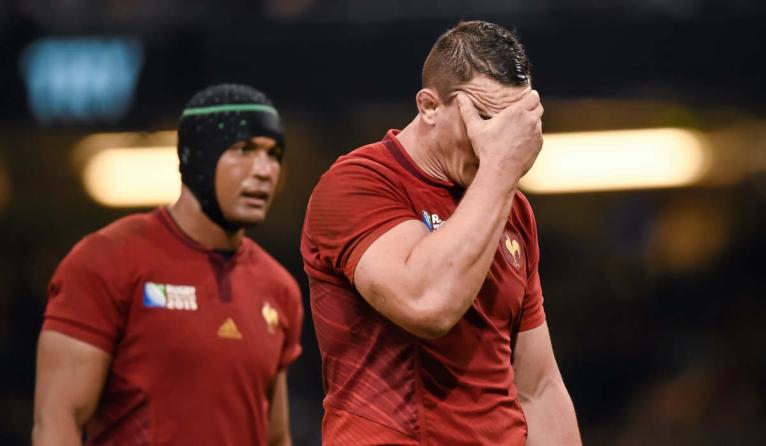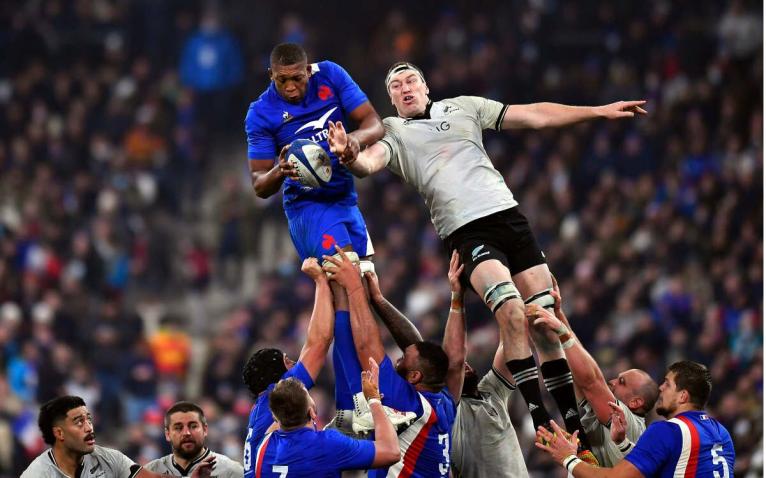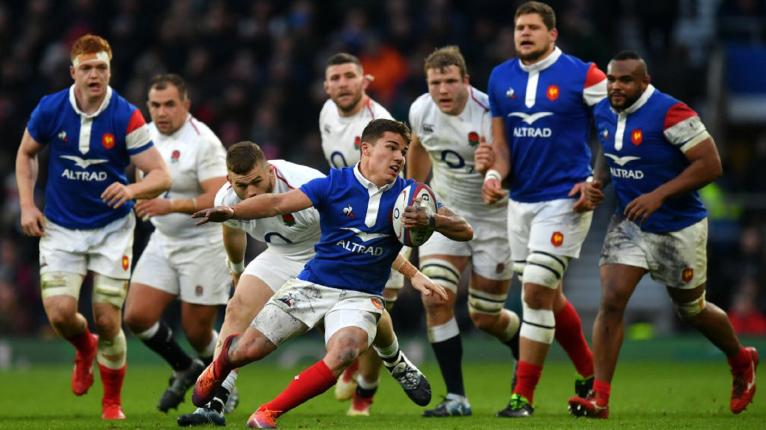“France shall win the Guinness Six Nations”. That’s a bold statement. Are you sure about that one?
“I’ll clarify. France will win …barring a fall.”
What’s sort of fall?
“One bum performance, a sending off, a dressing room mutiny. Could be any of a number of things. We’re talking France here …know what I mean?”
At the risk of falling head-first into rugby tropes, there remains something gloriously unpredictable about France’s national team. That said, the days of that most fatigued of tired cliches – “You never know which France is going to turn up” – has long been consigned to the dustbin of rugby history.
Philippe Saint-Andre’s France did a job on that one. With PSA at the helm you knew exactly which France would turn up. France’s failing in its four-year descent to a nadir reached in Cardiff and the 2015 World Cup quarter-final was in its staggering predictability – one-paced biff, bash, bosh of the kind cultivated on a weekly basis in the Top 14. It was a style so contrary to the classic France teams of the previous half-century which successfully melded a unique blend of gnarled and brutish dark artists with freestyle operators whose individual brilliance and elan had us all falling in love with the French way.

The green shoots of recovery in rugby’s artichoke fields were first spotted at under-20 level. New Zealand and England and, to a lesser extent, South Africa and Australia, had long recognised the value of this cohort. In contrast, France turned up year-in, year-out to the World Rugby U20 Championships looking disorganised and uninterested. As recently as in 2016 a France squad containing the current World Player of the Year Antoine Dupont finished ninth of 12 teams at the 2016 championship in Manchester.
I was there throughout and Dupont was, by some margin, the brightest individual spark at the championship. That he wasn’t even among World Rugby’s nominees for the player of the tournament award was baffling. In the judges’ defence, though, the France captain’s team had been shocking. On the face of it, the future of French rugby looked bleak.
Within eight months of being awarded the 2023 World Cup France’s under-20s had lifted the world trophy. They beat England in the final with Cameron Woki among the try-scorers and Romain Ntamack in the midfield.
But then the following year France won the race to host the 2023 Rugby World Cup. Front and centre of the six-year plan going into the event was producing a national team capable of winning it. When France previously hosted the Cup back in 2007 they lost on the opening night to Argentina and never quite recovered, eventually losing for a second time to the Pumas in the third & fourth place play-off.
Within eight months of being awarded the 2023 World Cup France’s under-20s had lifted the world trophy. They beat England in the final with Cameron Woki among the try-scorers and Romain Ntamack in the midfield. The starting props were Jean-Baptiste Gros and Demba Bamba. Four years on, each of them shall play a role in France’s tilt at what would be a first Six Nations triumph for 12 years.

Back in 2010, as this year, fixtures fell in France’s favour. Trips to Edinburgh and Cardiff are and were favourably offset by home games against Italy, Ireland and England. As they did back then, Les Rosbifs rock up in Paris for the last match in the Championship for what both English and Gallic fans will be hoping is a Grand Slam decider.
The news from the France camp going into Sunday’s opener against Kieran Crowley’s Italy could not be better. The Top 14 has just completed its first full weekend of fixtures in six weeks while a number of players who had played precious little rugby since the remarkable triumph against New Zealand in November emerged unscathed from much-needed run-outs. Also restored to the France “bubble” at a military camp on the outskirts of Marseille are the dozen or so Covid-infected players including six from Toulouse whose positive tests had prompted the cancellation of their final pool game in the Heineken Champions Cup.
After weeks of concern we now know Dupont is fit while Jonathan Danty’s renaissance at La Rochelle has offered Galthie a thundering midfield alternative to Virimi Vakatawa. And in Ntamack and Matthieu Jalibert France have two of the best three fly-halves in Europe.
If anything it is a stronger France squad than the one which went into the Autumn Nations Series. Bernard le Roux is back and fully fit to take his place in a kudu-sized second row alongside Paul Willemse. Cameron Woki demonstrated in November his long-term future may be wearing 4 or 5 but, for now, Galthie has the option of keeping Woki in the back row where he plies his trade for Bordeaux-Begles.
After weeks of concern we now know Dupont is fit while Jonathan Danty’s renaissance at La Rochelle has offered Galthie a thundering midfield alternative to Virimi Vakatawa. And in Ntamack and Matthieu Jalibert France have two of the best three fly-halves in Europe.
The current France cliché has been found in countless headlines over the past fortnight. Bold in both typeface and prediction claims such as “France expects” and “France must deliver” are ubiquitous. But is that really true? I’d say not. Because whatever happens over five weekends in February and March in 2022 will count for nothing if France fail in September and October 2023.

This Championship matters but it is not their watershed moment. Even so, if there is an omen which suggests France might just get across the line ahead of the rest this time, it is to be found among the names told not to return by Galthie to the squad’s camp on Sunday having been released for club duty at the weekend.
Any squad that can do without Mohamed Haouas is bound to be respected. The Montpellierian is a fiercely powerful and abrasive tight-head brimming with traditional Gallic front row virtues. But those “virtues” do, occasionally, get the better of him. Suffice it to say, Haouas is a character known to the gendarmes – and I mean not just rugby’s disciplinarians both also those carrying a wider brief on France’s streets.
A scuffle broke out and amid the fracas Haouas threw a right hook making contact with the nose of Scotland’s Jamie Ritchie. Carton rouge and with it the tide turned.
Two years ago, France headed to Murrayfield having won three from three including a 24-17 defeat of England. With halftime in sight France were leading 7-6 against the Scots. A scuffle broke out and amid the fracas Haouas threw a right hook making contact with the nose of Scotland’s Jamie Ritchie. Carton rouge and with it the tide turned. Scotland went on to win and, despite a final day victory against Ireland, France were pipped for the title by England on points difference.
Galthie appears to have recognised the danger ticking time bombs like Haouas pose in the bubbling cauldrons of Six Nations Tests. The Covid alarm bells started ringing over the weekend of that Murrayfield match and Haouas’s dismissal proved to be the last witnessed by the paying public for 23 months. This weekend the turnstiles will click over once again. But they will do so without Haouas involved.


Ironically, you say you won’t fall into cliché and then say the Top 14 each week is ‘one-paced bish bash bosh’.
Tell me you never watch Top 14 without specifically saying so.